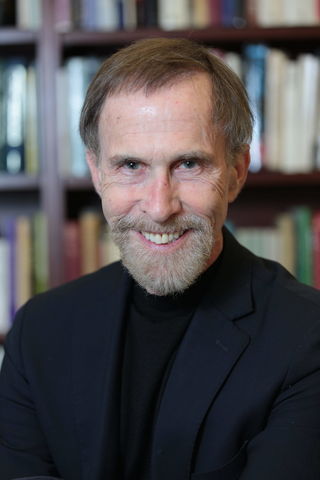Philosophy
From Economics to Biology
Alex Rosenberg on his shifting interests.
Posted March 27, 2020
This is Part 4 of this interview; click here for Part 3.
This is the fourth in a new series of posts on Science and Philosophy, featuring interviews with influential scientists and philosophers of science. Previous interviews featured Bas van Fraassen, Cailin O'Connor, and Massimo Pigliucci.

Alex Rosenberg is the R. Taylor Cole Professor of Philosophy at Duke University (with secondary appointments in the biology and political science departments). Alex has been a visiting professor at many universities, including Oxford University and more recently the Philosophy Department at the Research School of Social Science of the Australian National University and the University of Bristol. In 1993, Alex received the Lakatos Award in the philosophy of science, the most prestigious prize in the field. He's the author of more than a dozen academic books and a couple hundred papers.
Walter Veit: Could you elaborate on the theory of mind? Most readers of Psychology Today will not be familiar with the term.
Alex Rosenberg: The theory of mind is also known as folk psychology or common sense psychology. It’s just the theory that our behavior, and especially human action, is the causal product of packages or parings be beliefs and desires—the latter give the ends, the form identify the means to attain them, and together they determine our choices, decisions, and actions. David Lewis rightly identified its generalizations as “platitudes.”
Walter Veit: The two major problems in the philosophy of mind are the problem of consciousness and the problem of intentionality. The latter problem, contrary to the problem of consciousness, is almost unknown in the public. You seem to think that it is the bigger challenge of the two for science. Unlike fermions and witchcraft, however, it is unclear how we could even in principle eliminate intentional thinking. Can scientism cure our addiction to stories?
Alex Rosenberg: Lot of different questions there. I don’t know which is a graver problem for physicalism—the thesis that the mind is the brain: consciousness or intentionality. I have addressed one of them--intentionality. The other I have been silent on. Just because we cant eliminate intentionality, it might still be wholly illusory. That’s what my arguments from neuroscience purport to show. Nothing will cure our addiction to stories, but science can mitigate its baleful effects.
Walter Veit: When and why did you move from philosophy of biology to philosophy of cognitive science? Is there a connection to your earlier work in the philosophy of economics?
Alex Rosenberg: I moved to philosophy of biology from the philosophy of economics because biologists were actually interested in what philosophy of science might offer. Economists thought they were too smart to learn from other disciplines. Mostly, they still are, even after the financial crisis. I consider that cognitive science is part of biology, so I’m still doing philosophy of biology. My interest in molecular biology, and its relation to the rest of biology, made neuroscience a natural subject of interest as the molecular details of cognitive processes became more and more accessible.
You can follow the author on Facebook, Instagram, Medium, or Twitter to receive the latest updates.


